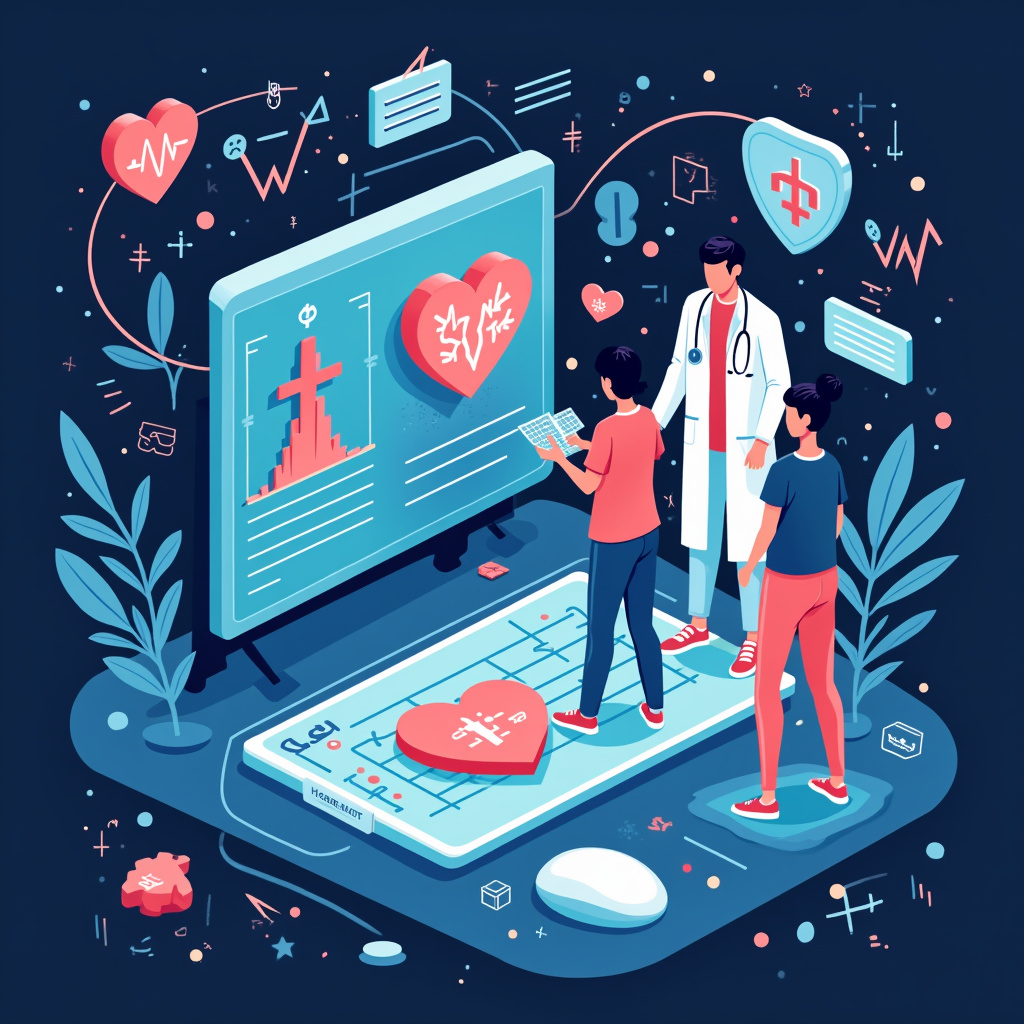The Role of AI in Healthcare

Introduction
Artificial Intelligence (AI) is rapidly transforming various industries, and healthcare is no exception. From enhancing diagnostics to personalizing treatment plans, AI is becoming an indispensable tool in the medical field. In this article, we will explore the significant roles AI plays in healthcare, how it benefits patients and medical professionals, and the challenges it faces.
Improving Diagnostics
One of the most impactful applications of AI in healthcare is in diagnostics. Traditional diagnostic methods often rely on human expertise, which can sometimes lead to errors or delays. AI, with its capacity to analyze vast amounts of data quickly, can assist in identifying diseases at an early stage. Here are some ways AI enhances diagnostics:
- Image Recognition: AI algorithms can analyze medical images, such as X-rays, MRIs, and CT scans, to detect anomalies that may not be visible to the human eye.
- Predictive Analytics: AI can assess patient data to predict the likelihood of developing certain conditions, allowing for proactive measures.
- Natural Language Processing: AI can sift through medical records and literature to extract relevant information, facilitating accurate diagnosis.
Personalizing Treatment Plans
Every patient is unique, and AI helps in tailoring treatment plans to individual needs. By analyzing data from various sources, including genetic information, lifestyle choices, and medical history, AI can recommend personalized therapies. This approach can lead to:
- Better Outcomes: Personalized treatments are more likely to be effective, as they consider the specific characteristics of each patient.
- Reduced Side Effects: By choosing therapies that align with a patient’s unique biology, doctors can minimize adverse reactions.
- Enhanced Patient Engagement: Patients are more likely to adhere to treatment plans that are customized to their preferences and needs.
Streamlining Administrative Processes
Healthcare systems are often burdened by administrative tasks that can take valuable time away from patient care. AI can streamline these processes in several ways:
- Automating Scheduling: AI-powered systems can manage appointment scheduling, reducing wait times and optimizing patient flow.
- Billing and Claims Processing: AI can help in processing insurance claims more efficiently, minimizing errors and speeding up reimbursements.
- Data Management: AI can organize and analyze vast amounts of patient data, making it easier for healthcare providers to access necessary information quickly.
Enhancing Patient Care
AI is also playing a crucial role in enhancing patient care. With tools like virtual health assistants and chatbots, patients can receive timely support and information. Some benefits include:
- 24/7 Availability: AI-driven chatbots can answer patient queries at any time, providing immediate assistance and reducing the burden on healthcare staff.
- Remote Monitoring: AI technologies can monitor patients’ vital signs and alert healthcare providers if any issues arise, allowing for timely interventions.
- Increased Accessibility: AI can help bridge the gap in healthcare access, especially in remote areas, by providing virtual consultations and support.
Challenges and Ethical Considerations
Despite its many advantages, the integration of AI in healthcare is not without challenges. Some of the primary concerns include:
- Data Privacy: The use of AI requires access to sensitive patient information, raising concerns about data security and patient privacy.
- Bias in Algorithms: If AI systems are trained on biased data, they may produce unequal outcomes, exacerbating existing disparities in healthcare.
- Regulatory Hurdles: The rapid pace of AI development often outstrips existing regulations, making it difficult to ensure safety and efficacy.
Conclusion
The role of AI in healthcare is expanding, offering promising solutions to many of the industry’s challenges. From improving diagnostics and personalizing treatment plans to streamlining administrative processes and enhancing patient care, AI has the potential to revolutionize the way healthcare is delivered. However, it is essential to address the challenges and ethical considerations that accompany this technology to ensure that its benefits are realized equitably and safely. As we move forward, the collaboration between AI and healthcare professionals will be crucial in shaping the future of medicine.




